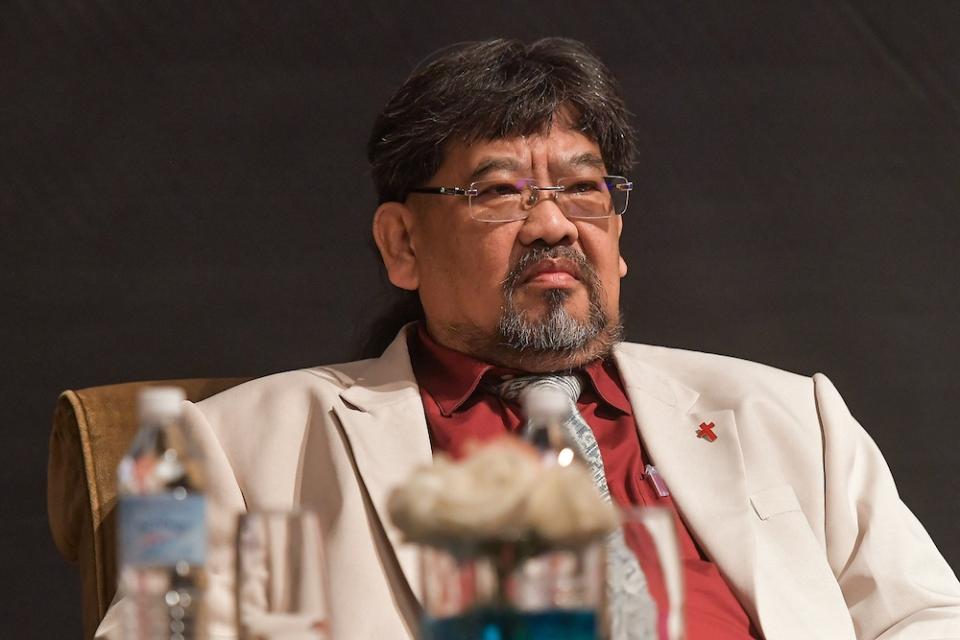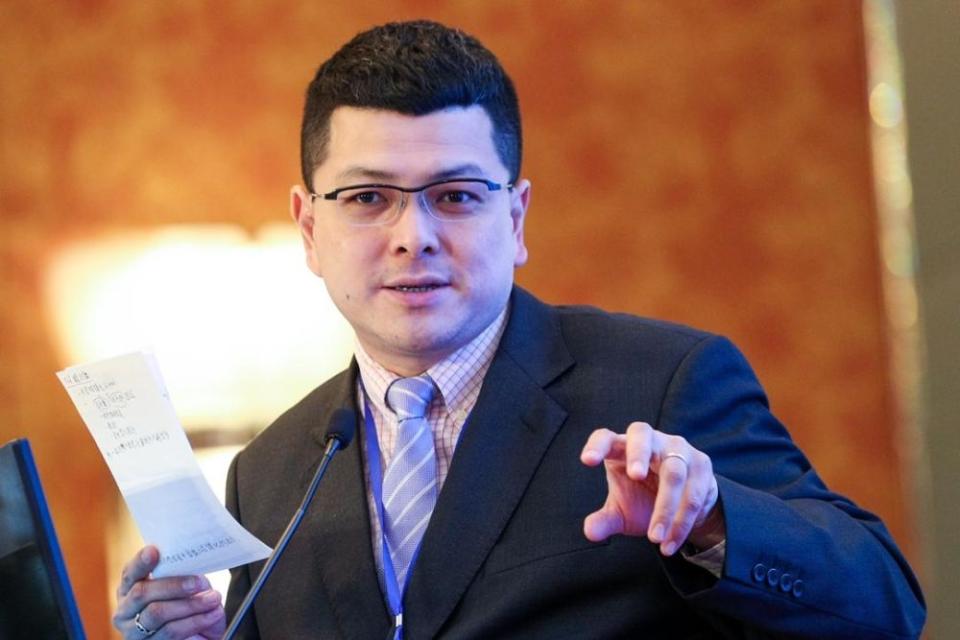Can Dr Mahathir bring in investments for four PAS-ruled states as unofficial adviser? Analysts weigh in

KUALA LUMPUR, Sept 17 — Former prime minister Tun Dr Mahathir Mohamad has been made an unofficial adviser for the four PAS-governed states of Terengganu, Kelantan, Kedah and Perlis — dubbed as the “State-Government 4” (SG4) — but can he help bring in foreign investors to these four states?
What would Dr Mahathir’s role be as unofficial adviser? Terengganu Menteri Besar Datuk Seri Ahmad Samsuri Mokhtar said on September 14 that Dr Mahathir would provide advice on efficient administration and approval of projects in the four states as inefficiency had turned away investors, and that the ex-PM would link up investors from countries such as Japan and Korea to these four states.
However, political observers who spoke to Malay Mail were divided on how effective Dr Mahathir would be in his new role.
Datuk Jayum Jawan, professor of political sciences at Universiti Putra Malaysia (UPM), said any advice given by Dr Mahathir as an unofficial adviser for the purposes of drawing in investors to the four states would be “wasteful”.
Jayum said this is because Dr Mahathir would be acting outside of the established framework where countries deal directly with each other for finance-linked matters, instead of dealing individually with states within a country.
Asked if Dr Mahathir’s new role would help the four PAS-ruled states to attract investors from Korea and Japan, Jayum indicated this would be unlikely.
“Mahathir has long passed his prime in politics and nation building. He has had his second chance to correct what he could have done differently in the first 22 years as PM when he became PM the second time in 2018. But he made one blunder after another and in the end showed his true colour, a Malayan leader who could not rise above the 3R in order to remain relevant in Malayan-dominated politics of Malaysia,” Jayum said, referring to the 3R acronym for “race, religion, and royalty” issues and Malaya that is now Peninsular Malaysia.
“His appointment as unofficial adviser to four PAS-ruled states does not add any weightage in terms of national as well as international political processes. He may once be very respected in the East by countries such as South Korea and Japan, but that is hardly the case anymore,” he said.
Jayum also cited the Federal Constitution’s Ninth Schedule’s List I (otherwise known as the Federal List), which outlines what matters fall within the federal government’s jurisdiction, and specifically cited Item 7 (relating to finance) and Item 8 (relating to trade, commerce and industry) in List I. List II is a separate shorter list that outlines the matters that fall within the limited jurisdiction that state governments have.
“Furthermore, finance and anything to do with money is a federal matter (Item 7, Ninth Schedule/ Item 8, relating to Trade, Commerce & Industry), and therefore state and region cannot do any external engagements with money matters without the approval of the federal government.
“Thus, South Korea and Japan or any country for that matter may not want to deal with any state or region in Malaysia directly, but through established protocol, that is through the legitimate national government and that is the Unity Government and Anwar Ibrahim,” he said, referring to Prime Minister Datuk Seri Anwar Ibrahim and his federal government now commonly known as the unity government.
“Thus, any advising outside the scope of this is wasteful advice and may not augur for good federal-state relations,” the fellow at the Academy of Sciences Malaysia said.
Asked if having Dr Mahathir as the four states’ unofficial adviser would help both PAS and PN, Jayum replied: “No, it is better that PAS and PN recruit professionals who are more in tune with current sentiment and in touch with present economic realities to help their four states deal with economic matter in the respective states.”
Malaysia is a federation composed of states and territories (Sabah and Sarawak) as well as federal territories (Kuala Lumpur, Labuan, Putrajaya), with Jayum noting that there are established methods under a federal arrangement for how each state held by a different political party deals with its counterpart at the federal level.

UPM professor of political sciences Datuk Jayum Jawan said any advice given by Dr Mahathir as an unofficial adviser for the purposes of drawing in investors to the four states would be ‘wasteful’ as Dr Mahathir would be acting outside of the established framework where countries deal directly with each other for finance-linked matters, instead of dealing individually with states within a country. — Picture by Miera Zulyana
Oh Ei Sun, senior fellow at Singapore Institute of International Affairs, said the four states do need investments, and said it was possible for Dr Mahathir’s new role to help PAS and PN if any investments that come in last longer: “If the investments come and stay for more than a few days, perhaps it would help.”
“These four states, being understandably some of the most backward after prolonged PAS rule, certainly need a lot of investment to even just catch up with the rest. So if Dr Mahathir could work his magic and attract long overdue investments from Japan and Korea, hopefully it could go a long way toward resuscitating these impoverished states.
But when asked if Dr Mahathir would be able to attract investment from countries like Japan and South Korea for these four states, Oh said: “I highly doubt it, as foreign investors may not be attracted to the highly religiously charged overall social environments in such states.”

Singapore Institute of International Affairs senior fellow Oh Ei Sun said the four states do need investments, and said it was possible for Dr Mahathir’s new role to help PAS and PN if any investments that come in last longer: ‘If the investments come and stay for more than a few days, perhaps it would help.’ — Picture courtesy of Oh Ei Sun
Kartini Aboo Talib@Khalid, a professor from Universiti Kebangsaan Malaysia (UKM), however, believes that Dr Mahathir will still be able to draw in investors to the four states.
“Tun Mahathir is the mastermind cum business architect for Malaysia, from heavy industries to the Look East Policy, his creative ideas, independent thinking, and meticulous strategies deem him invaluable to Malaysia. His business networks are vast and were built based on trust and long-term partners.
“Making him the unofficial adviser of the PAS-ruled states will attract businesses to flow to these states with reliable capital and investors. Japan and South Korea value trust and respect friendship, especially from a long-term partner. Tun Mahathir could become a living relic of trust to attract investors from Japan and South Korea,” she said.
Kartini said Dr Mahathir’s business networks are not limited to just Japan and South Korea, but are all over the world, and said the foreign direct investment that can be drawn in could be in many forms instead of just capital, noting for example that a hub for storage of goods and commodities can be created and with transactions resulting in multimillion dollars of profit if done appropriately.
With Dr Mahathir’s new role, Kartini said: “Eventually it will help these states to learn new ideas and progressive strategies from a very experienced statesman. It is better not to underestimate Tun Mahathir’s business networks and capital.”
Asked if having Dr Mahathir as an unofficial adviser to the four states would help PN, Kartini said it would be mutually advantageous to both PN and Dr Mahathir, as it would also enable the latter to contribute.
“For PN, it will boost and strengthen capital, because politics need capital to flourish and survive. For Tun M, patriotism and love of Malaysia are what holds dear to him, and continues to contribute to the last end,” she said.
“I believe he will do his best, till the last ounce he has to help the businesses in these states. For ruling Malaysia for more than 22 years, he is the mastermind of all info about business tycoons. These states need information and knowledge is power,” she said.

Umno politician and former federal minister Datuk Seri Salleh Said Keruak said he believes the appointment of Dr Mahathir as the unofficial adviser of the four states is actually a move by PN to make him its de facto leader. — Picture by Hari Anggara
Can becoming an unofficial adviser help Dr M?
On September 14, Umno politician and former federal minister Datuk Seri Salleh Said Keruak said he believes the appointment of Dr Mahathir as the unofficial adviser of the four states is actually a move by PN to make him its de facto leader.
But Jayum said such an advisory role to the states is too small for Dr Mahathir whom he described as a person “once dubbed as a statesman”.
“The role is too small for a big man. As a statesman, his role could only be at the regional and international level, advising regional and international organisations and not within the national boundary,” he said.
Asked if being made an unofficial adviser would help Dr Mahathir, Jayum said the former prime minister’s “time has long passed”.
“He would gain more respect as a statesman by being a statesman and let younger people run the state/ country. He could have learnt a bit from former prime ministers such as Pak Lah, Hussein Onn, and Tunku; they kept to themselves when their times passed.
“Lately, he is also not saying anything intelligent reflective of his stature as a statesman, but pushing Malaysia and Malaysian politics into the Malayan era where race and religion dominated,” he said.
“Malaysia needs reconciliation, and embracement of diversity moving forward as a multi-ethnic country. Malaysia needs to give the Unity Government and Anwar Ibrahim opportunity and some time to make that adjustment. Malaysia cannot and must not allow any narrow-minded individuals and leaders to push them back to the era of 1940, 1950s Malaya when politics expounded on race and religion,” Jayum added.
As for whether being an unofficial adviser to the four states would help Dr Mahathir, Oh bluntly said: “Dr Mahathir has nowhere else to go, so as the Hokkien saying goes, ‘when fish is not available, prawn is also acceptable’.” The saying means that it is acceptable to settle for something less or that it is better to have something than to have nothing.
Oh agreed that Dr Mahathir “could well be” merely playing a ceremonial role as the unofficial adviser, as if he is friendly to PN he would pose no harm to them.
As for whether being unofficial adviser would lead to Dr Mahathir playing a bigger role in PN such as becoming its de facto leader, Oh said: “If he could resuscitate their ailing economy within his ripe lifespan, perhaps he would.” But Oh later also pointed out the fluid and fast-changing nature of politics.
Asked if the new role could help Dr Mahathir regain his relevance in politics or help with his political legacy, Oh said: “He needs to at least cling on to some political straws at the moment. But politics is fast changing nowadays.”
As for Kartini, when asked if being an unofficial adviser would help Dr Mahathir with his political legacy and to regain his relevance after losing his deposit while contesting for the Langkawi seat in the 15th general elections, she said: “He is a legend both good and bad. He will remain relevant as the architect of modern Malaysia.”



